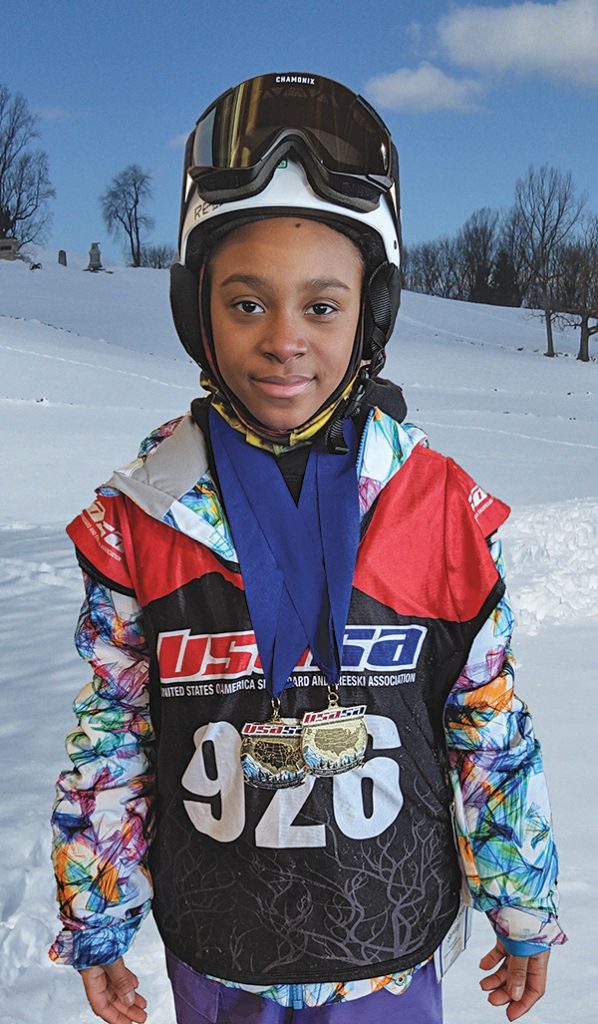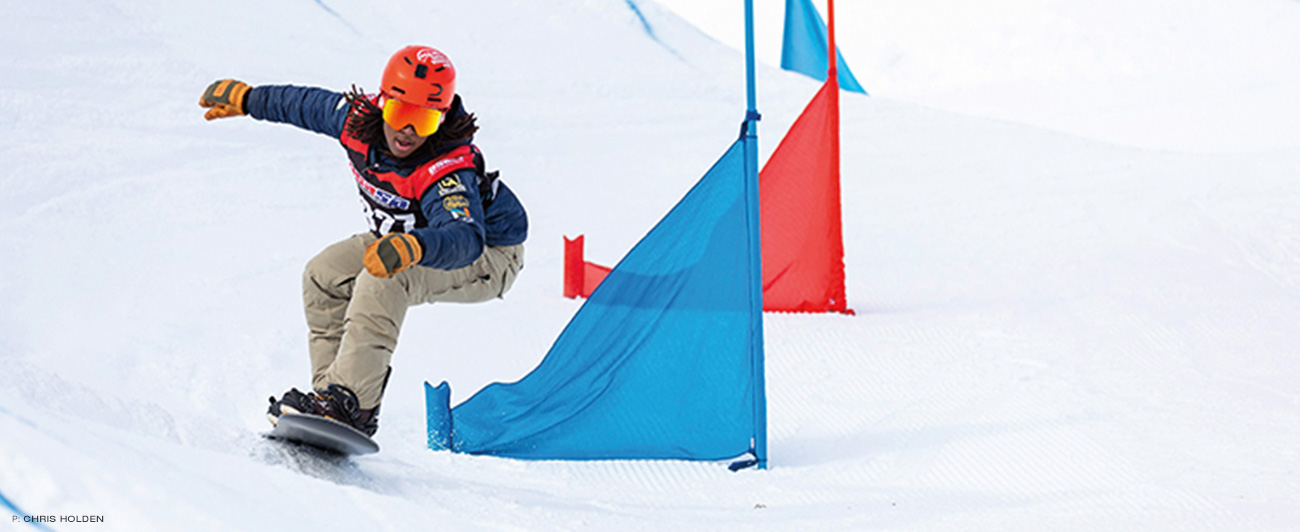Yodel
Race, Space and Place
Collective Success Through Snowboarding
I believe that snowboarding can stand for social justice, anti-racism and lead the way to diversifying winter sports and supporting equity in the outdoors. In order to do this, we must understand the relationship between race, space and place. We must dig deeply into the positive values that are part of the snowboarding community that support this movement—friendly competition, collective success, love of the outdoors, openness, creativity—and simultaneously examine how structural and symbolic racism combined permeate the snowboard community.
My son, Aten-Wa Theba, is 15 years old. He is a nationally ranked competitive boardercross racer, and he is African American. As a parent, I had to retrain myself for how snowboarding competition happens. Aten-Wa has podiumed a lot over the years. After most events, the chalet would be full of parents for the award ceremony while the competitors were out on the slopes sharing the joy of snowboarding. There is a great sense of shared accomplishment in the snowboarding community, a high value placed on organic experience and diverse self-expression. This is not the fiercely competitive environment that I grew up in playing traditional sports and is contrary to the hyper-masculine action-sports narrative that is promoted in the mainstream.
We have traveled the country—usually alone as a family, but we have always been supported by coaches and athletes. At the same time, we are consistently the only Black family, and off the slopes we are always in isolated, less-friendly communities where we feel unsafe and are on guard. While traveling for a summer training snowboard camp for my son at Mt. Hood, OR, my 10-year-old daughter and I took an excursion to camp out and mountain bike at Trillium Lake. We set up our campsite and went to Government Camp for provisions and returned to find a noose in our campsite. These are experiences you cannot prepare for but must if you are Black. It is imperative to understand this is not isolated or some random accident of bad timing.

above Senetneb Theba. Photo: Anthony Taylor-Theba
Whiteness has served as an adhesive that symbolically bound one-time “others” to institutional and structural arrangements that sought to maintain social and cultural benefits. It has maintained the fundamental reality that America is segregated socially and economically by construction of race. Snowboarding is fundamentally a social pursuit and is therefore no different. Participation has been regulated by economic factors and, more often than not, the economics in our country are clearly divided along racial lines. The places we live, and play, are deeply impacted by the history of land use and distribution, redlining and the urban (code word for Black communities) versus rural divide that lives today.
All this said, I have experienced the snowboard community to be generous and open. I have collaborated with young, white pro snowboarders in my community, Jake Olson-Elm and Joe Sexton, to coach Black, Brown youth and girls. We created programs such as Cool Meets Cause that help to remove the geographic and economic barriers that make snowboarding seem to be only for white people. We searched and found women and POC coaches to lead engagement efforts and coaching because representation matters.
I truly think snowboarding can be and must be part of the solution, but it will not happen by itself. We must do the work.
What we can all do:
First, acknowledge the reality that communities of color experience in this country. Don’t look away, minimize or dismiss it. Tackle it square on to change it. Acknowledge these disparities as results of inequitable public policy and underinvestment in communities of color, not as symptoms of a person’s poor decision-making and lifestyle.
Look inward for bias. Commit to non-silence. Challenge your favorite winter sports and outdoors business, brand, resort or community as to how they support equity. And remember that equity is an outcome. Challenge yourself to expand your circles, your understanding and your worldview. If you live in a community that is diverse, connect and support friends or family to learn snowboarding. If you don’t live in a diverse community, start a conversation about race within your own family or friend groups. Lastly, acknowledge the first peoples of the landscapes where you ride.
This culture of friendly competition, of collective success, of finding joy in nature, the surrender to gravity, the celebration of progression, expression, creativity and community—that is my snowboard community. That is snowboarding’s opportunity. These values are the elements through which snowboarding can contribute to combating racism and healing our communities.
This article first appeared in The Snowboarder’s Journal Issue 18.1, published in September, 2020.
